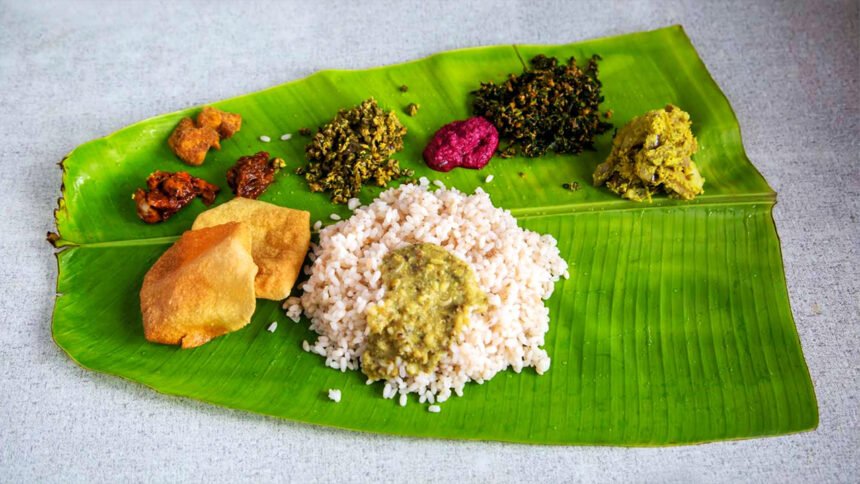Banana leaves, those generous, waterproof fronds originating from the banana plant, have long been a staple in various tropical cuisines. They serve as both a cooking vessel and a serving platter, forming an integral part of dining traditions, particularly in South Asia and Southeast Asia. These leaves are used as eco-friendly plates, with various dishes arranged directly upon them.
The popularity of dining on banana leaves stems from several compelling reasons. Firstly, their natural, biodegradable nature makes them an environmentally conscious choice. Secondly, their ample size can comfortably accommodate multiple courses, eliminating the need for numerous plates. Moreover, their waterproof quality acts as a barrier, preventing any unsightly leaks or seepage. Lastly, it’s believed that these leaves subtly infuse a unique flavor and aroma into the food, enhancing the overall dining experience.
From a health perspective, dining on banana leaves offers certain advantages. Banana leaves contain polyphenols, antioxidants with potential health benefits. When hot food comes into contact with the leaf, some of these polyphenols can transfer to the meal, providing antioxidant support.
Using banana leaves as plates can also reduce the reliance on chemical-laden disposable options, promoting environmental responsibility and potentially lowering exposure to harmful substances. Below, we delve into the eight benefits of dining on banana leaves:
- Natural Disinfectant: Banana leaves possess natural antimicrobial properties, reducing the risk of foodborne illnesses by curbing harmful bacteria.
- Nutritional Value: These leaves contain essential nutrients like polyphenols, vitamin A, and vitamin C, which can enrich the nutritional content of the food they cradle.
- Enhanced Flavor: Dining on banana leaves introduces a subtle, earthy taste that heightens the enjoyment of the meal.
- Environmentally Friendly: Opting for banana leaves over plastic or foam plates supports eco-friendliness, curbing pollution.
- Biodegradable: Banana leaves easily break down without harming the environment, reinforcing sustainability in food service.
- Aesthetically Pleasing: The traditional charm of dining on a banana leaf elevates the visual appeal of a meal, enhancing the dining experience.
- Non-Toxic: Unlike some synthetic alternatives, banana leaves are non-toxic, ensuring food remains free from harmful chemicals or toxins.
- Digestive Boost: The polyphenols found in banana leaves stimulate digestive enzyme production, potentially aiding digestion and nutrient absorption.
While dining on banana leaves provides numerous advantages, it’s important to recognize that the direct health benefits are relatively modest, primarily due to the brief contact between the leaf and the food. The choice to use banana leaves is primarily rooted in cultural and practical considerations rather than strict health concerns.
















